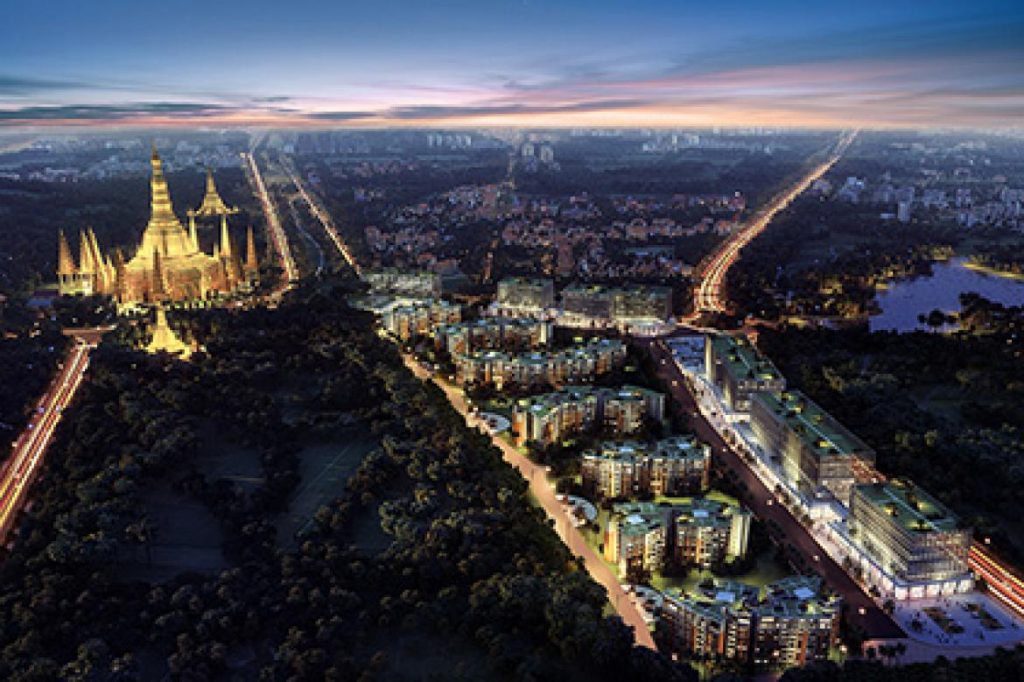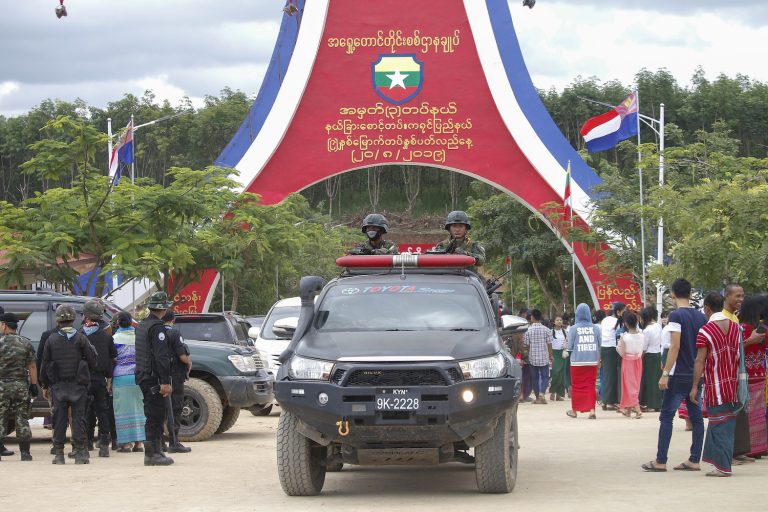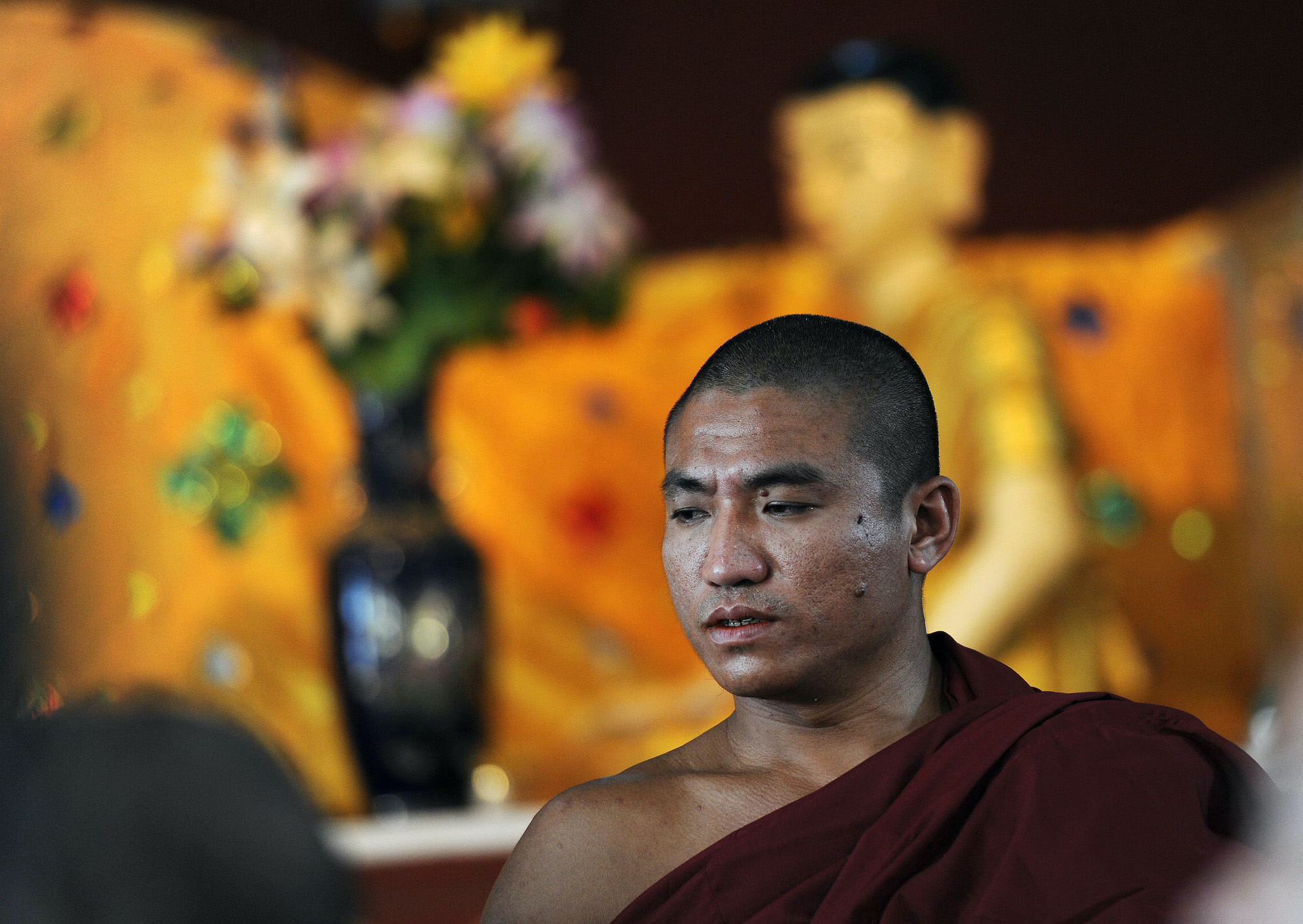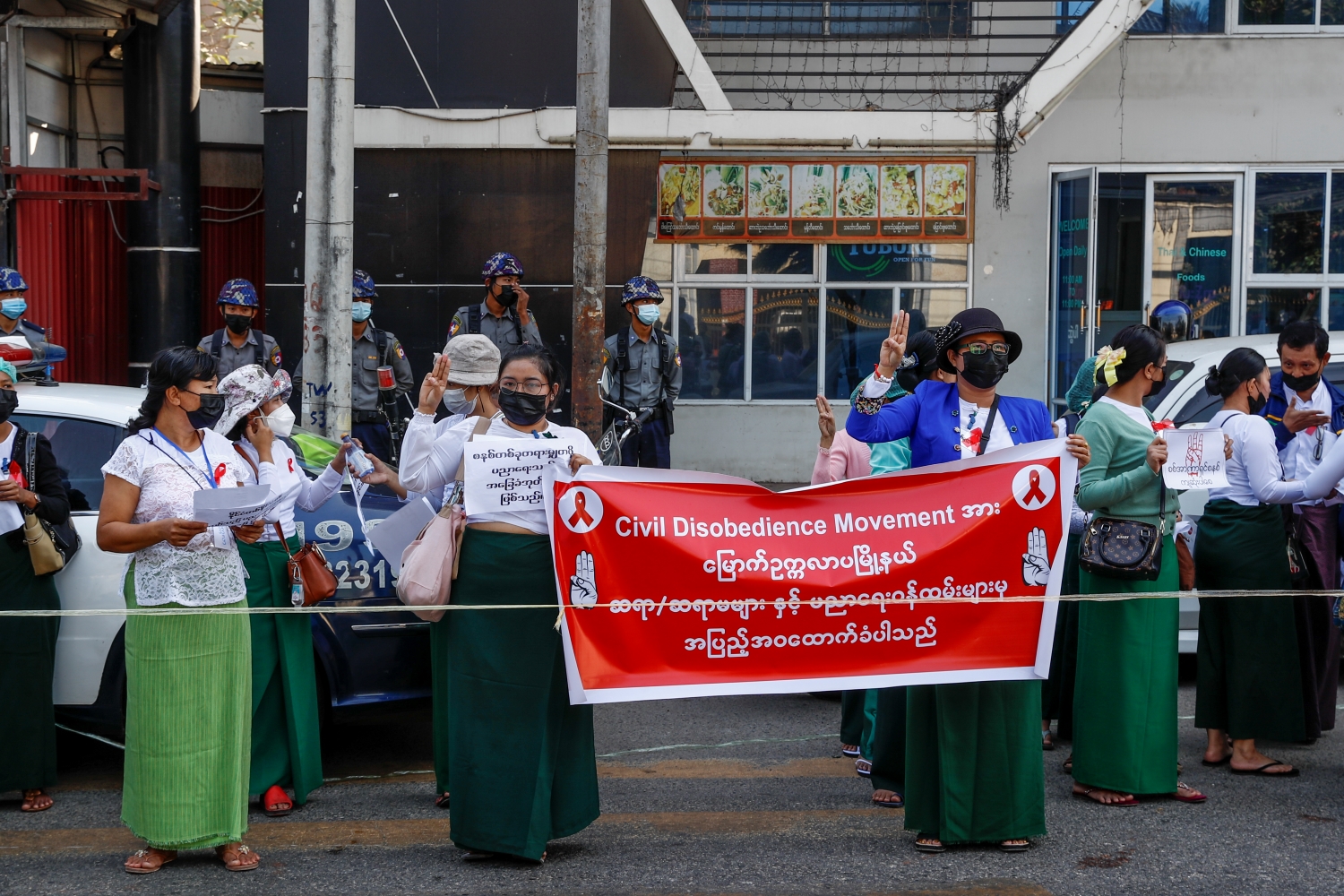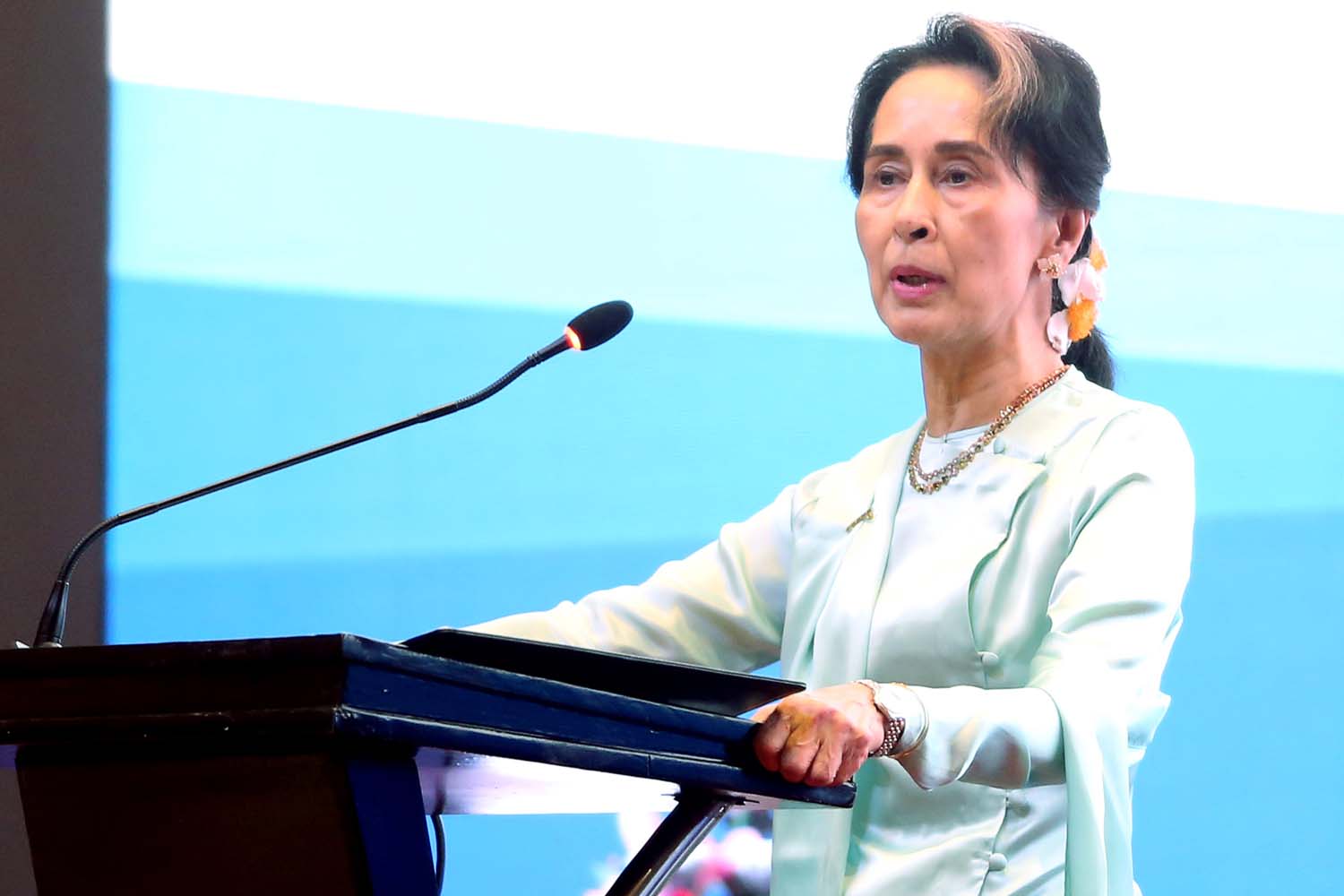By KO KO AUNG | FRONTIER
Negotiations for compensation have begun after the government’s dramatic decision last week to cancel five big real estate developments near the Shwedagon Pagoda a day after monks threatened nationwide protests against the projects.
The projects were being cancelled to avoid damage to “religious edifices and cultural heritages, including the Shwedagon Pagoda”, state media said, quoting a government announcement on July 7.
The announcement followed escalating opposition from the public and civil society groups as well as monks to the projects, that include the US$300 million Dagon City 1 development on which work had begun.
Dagon City 1 was one of five projects planned on 71-acres of land formerly owned by the military on a tree-shrouded hilltop just south of the Shwedagon Pagoda, the nation’s most revered Buddhist holy site.
Support more independent journalism like this. Sign up to be a Frontier member.
The Defence Ministry had invited tenders for the projects and they had been approved by the Myanmar Investment Commission.
The ministry and the MIC had recommended cancelling the projects and the four companies that won the tenders had “given their consent” to the decision, the July 7 announcement said.
The companies are Marga Landmark Development Co., Ltd, and Thu Kha Yadana Co – the joint venture developers of Dagon City 1 – as well as Shwe Taung Development Co., Ltd, and Adventure Myanmar Tours and Incentives Co., Ltd.
Thu Kha Yadana managing director U Thaung Htike Min told Frontier on July 9 that the company was in the early stages of negotiations for compensation.
“Our company has been hit hard by the cancellation of this project,” said U Thaung Htike Min.
“The cancellation of this project will affect international investors, to some extent, to think again before investing in Myanmar,” he said.
In a statement issued on July 9, the Marga Group questioned claims that the development of the 22-acre Dagon City 1 site could destabilise the foundations of the Shwedagon Pagoda.
It said a comprehensive review of the plans and technology for the Dagon City 1 project by the Myanmar Engineering Society had found that it would not affect the Shwedagon Pagoda.
“Our intended use of a diaphragm wall, an advanced technology used by many developing countries and cities, will not affect any building within three feet,” the statement said.
“The Shwedagon Pagoda, which is 3,000 feet away from the project, will certainly not be affected,” Marga Group said, adding that a basement would be no deeper than those at many existing buildings in the area.
It also declared that Dagon City 1 had never intended and would never use ground water, the pumping of which can cause subsidence.
Asked about the cancellation, President’s Office director U Zaw Htay, referred Frontier to the government’s announcement and declined to comment.
Yangon Region parliament independent MP Daw Nyo Nyo Thin welcomed the cancellation, saying the facts showed the projects could damage the Shwedagon Pagoda.
“Ethical investment that does not harm our heritage is warmly welcomed,” she added.
Daw Nyo Nyo Thin referred to rising public anger over the projects that had resulted in a letter to President U Thein Sein urging their cancellation.
“That is why the President’s Office announced the cancellation of the projects,” she said.
Monks opposed to the projects had threatened on July 6 to stage rallies throughout the nation calling for them to be halted.
“For the race and religion, we opposed this project,” said the Venerable U Parmuakha, a leader of the campaign opposing the projects and member of the Save the Shwedagon Committee.
“We feel happy because the government halted this project,” he said.
Development troubles
Dagon City is not the only high profile development that ran into trouble. Vietnam based HAGL Group began work on its $550-million HAGL centre in 2013. With two office towers and a 23 story hotel, it is Yangon’s largest mixed-use property project.
Earlier this year consultancy firm Rowsley, in which Singaporean billionair Peter Lim has a 49 per cent stake, pulled out of the HAGL project. It was going to invest $275 million for a 50 per cent stake in the joint venture that it pulled out of.
The $300 million Landmark development by Yoma Stragtegic Holdings has trouble materializing as well. Yoma wants to develop the former headquarters of the Burma Railways Company into a five-star hotel, but it had trouble getting the capital lined up as a result of problems with the lease.
In March the Myanmar Investment Commission (MIC) granted an extension of the lease, which put the redevelopment of the heritage site firmly on the map again.


